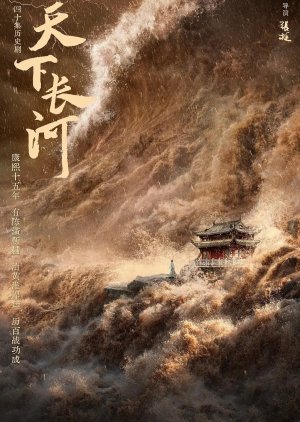The prefect of Jiangning found Jin Fu on the way of Zhenjia's patrolling the river. Seeing that he was still alive and his life was unhurt, he reported to the court and was deported to Beijing by edict. Master Ming Xiang came in a hurry, claiming to be escorting Jin Fu according to the order of the family master.
The night before he left, Yu Zhenjia was reprimanded by his mother. He sat alone in the room to reflect on himself. He thought that Jin Fu was old and was quite sympathetic. He should not have the kindness of this woman. When he deported Jin Fu to Beijing, he was secretly overjoyed and had a shameless idea of promotion; the third was to reject the eggs his mother gave him, and to deceive his heart and deceive him, it was really worse than a beast.
After thinking about me three times, Yu Zhenjia lowered his head and looked closely, there were more black stones than white stones, it seemed that he was far from the saints and the world. Because of this loss, Yu Zhenjia went to the cell to visit Jin Fu, and accidentally bumped into the master to persuade Jin Fu to write a confession, and Mingzhu would like to cleanse him in front of the saint.
Jin Fu felt that he was worthy of the ancient sages and the laws of the country, so he had nowhere to write. Yu Zhenjia was puzzled and unhappy, and was curious that Jin Fu, as the governor of all sides, wanted to ask Ying to manage the Yellow River, and he ended up in such a field. However, Jin Fu responded truthfully and did not win the trust of Zhenjia, and his numerous crimes became the impression he left on everyone.
On the way to the capital, Jin Fu carefully studied the article on governance of the river, and repeatedly sighed that it was wonderful. Yu Zhenjia ridiculed Jin Fu for reading the book of sages in vain. He was thinking of governing the Yellow River because of the unpredictable meaning. Although he and Jin Fu had different views, fortunately they both served the country and the people.
Passing through the mouth of the Yellow River, Jin Fu found the person seeking death and was about to stop him when a man suddenly emerged from the water and easily rescued him back to the shore. This person is not afraid of water danger and claims to be the reincarnation of He Bo. After saying that, he turned and left. Yu Zhenjia was stunned. He was really crazy, but Jin Fu admired him and changed his mind.
After staying at the Yunti Inn, I met a man again. After talking, I found out that he was the original author of the article on river governance, Chen Huang. Because his mother gave birth to him in the river, he took the Tianyishui in the Book of Changes and took the alias Chen Tianyi. Jin Fu praised Chen Huang's talent, and wanted to present this book to the saint. He hoped that Chen Huang could serve the Yellow River and show his strengths. How could he know that Chen Huang declined politely.
The master noticed the content of the conversation between Jin Fu and Chen Huang, and arranged for officers and soldiers to find a way to drive away these students who participated in the scientific examination, including Gao Shiqi, the first talent in Jiangnan, Xu Qianxue, a descendant of the minister of the Ming Dynasty, and Chen who did not look amazing. pond. The three of them were financially poor and lived in the same room.
Chen Huang stood at the door to observe the wind direction, inferring that the flood would soon be over, but he did not know that the disaster had come to him. The inn clerk obeyed the master's arrangement and found a reason to drive them out of the inn, regardless of the few taels of money owed before. The three of them had nowhere to go. They came to the ruined temple with a broken umbrella. Gao Shiqi, who regarded himself as lofty, commented on the poems on the wall. Xu Qianxue lamented that he was different from others. Read the load, and come to this desolately.
Yu Zhenjia couldn't get used to Mingzhu's practice of driving away the students, so he simply moved to live with Jin Fu, and began to self-examine himself on the floor. Jin Fu saw that he was obsessed with right and wrong, and cited the deeds of the ancients to determine the merits and demerits. Emperor Yang of the Sui Dynasty built the canal, which cost the country's strength and people's livelihood. Hiding in seclusion in the mountains, not caring about the safety of the people at all.
The ancients said that great benevolence is not benevolent, and the truth of this sentence needs to be carefully pondered. Yu Zhenjia was deeply inspired and suddenly realized that Jin Fu would have such an insight. At the beginning, Yu Zhenjia thought that an official should distinguish between good and evil, but in Jin Fu's view, a man should be a man.

